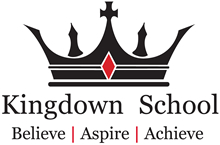Why Study ICT?
Almost daily developments in all areas of ICT mean the world is more connected than ever. You can get a real insight into how these technologies work, how we interact with them, and the effect they have on our lives by studying ICT topics at University.
The term ‘ICT’ is, in effect, a term used for primary and secondary school’s delivery of learning how to use a computer. At most schools, this is limited to:
ICT = Information Communication Technology
This would focus on the use of software ahead of the ins and outs of how a computer work.
Computing = Computing GCSE or Computing A Level
This would focus more on the workings of a computer ahead of the software.
Indeed, a search for ‘Information Communication Technology’ courses on UCAS leads to only 236 courses (http://bit.ly/j91FVP).
Surely there are more courses on ICT than 200 odd?
Often, it’s best to search for ‘Computer Science and IT’ which would include the…..
‘Design, exploitation and technology surrounding computing - includes computer sciences, information systems, software engineering, artificial intelligence.’
Which are the best Universities?
Computer Science and IT (Guardian)
http://www.guardian.co.uk/education/table/2010/jun/04/university-guide-computer-sciences-and-it
Computer Science (The Complete University Guide)
http://www.thecompleteuniversityguide.co.uk/league-tables/rankings?s=Computer+Science
What skills will you develop?
The practical nature of many of these courses will mean you will know how to solve technology problems - or at least know where to begin.
You will learn how to analyse information and how to put the theory, often about large and complex systems, into practice.
You should graduate equipped with the professional and interpersonal skills needed to work in the industry. You should develop teamwork, project management and commercial awareness as well as critical thinking skills
Perhaps, most important, you will have gained a good insight into a specialised field. Although the majority of people own or use computers, building and maintaining them requires skilled individuals.
What other ICT related degrees are there?
There are so many other courses that offer an ICT related study including:
· Communication and Media
· Web Development
· E Commerce
· Digital Media
· Games Development
· Hardware Development
· Internet Business
What does it lead on to and what are the chances?
You might expect that a career in Information Technology would revolve around expertise in programming languages but looking at the skills required for many of these professions reveals that the so-called transferable skills are just as important: team working, inter-personal skills, problem solving, analytical work and presentation skills.
More than half of computing and IT graduates get jobs in the industry in technical fields, such as computer operations, computer systems sales and service, programming, software engineering or as analysts and programme writers.
This could mean working in specific IT firms or in companies outside the industry that use computers as a core part of the job, perhaps managing the computing needs of an advertising firm's employees.
If you graduate bursting with ideas, or with some freelance work under your belt, then perhaps you could consider setting up your business or developing your existing work. After all, Google, YouTube and MySpace didn't just happen on their own.
Very good file about career paths in IT (see page 2)
http://www.bcs.org/upload/pdf/ukpaths.pdf
How much am I likely to earn?
This is very hard to predict. There are no set pay scales in computing. Starting salaries range from £14,000 for a network technician with the average graduate starting on £21,000. Pay can rise to £50,000 with experience and responsibility. Sometimes there is a shortage of specific software skills and salaries can rise according to supply and demand.
What current developments?
Organisations are looking for applicants who:
· Have the ability to operate computer equipment
· Can deploy appropriate theory and practice
· Recognise professional, moral and ethical issues
Links
Useful page on The Guardian introducing you to Computing and IT
http://www.guardian.co.uk/education/computerscienceandit
Useful, but somewhat dated, skills looked for
http://image.guardian.co.uk/sys-files/Education/documents/2007/04/17/Computing.pdf
Careers in IT
http://www.e-skills.com/careers/
IT Jobs Website
My IT Career Website
Graduate Job Website for IT Jobs
http://www.myitcareer.co.uk/graduate-job-advice.php
Communication and Media Courses
Web Development Courses
E Commerce Courses
Digital Media Courses
